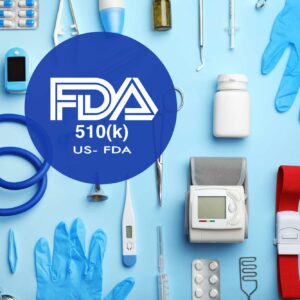- Via newly issued guidance on December 7, 2022, Homeopathic Drug Products, FDA describes its updated approach to prioritizing enforcement and regulatory actions for homeopathic products that are marketed in the U.S. without the required FDA approval. FDA’s risk-based approach seeks to prioritize specific categories of homeopathic drug products that potentially present a higher risk to public health, such as those intended for higher-risk and more vulnerable populations (e.g. infants and children, the elderly, pregnant women, and those with weakened immune systems). Currently, there are no FDA-approved products labeled as homeopathic, and the agency has repeatedly warned consumers and industry that such marketed drugs do not meet standards for safety, effectiveness and quality, particularly products with measurable amounts of active ingredients that are marketed to treat serious diseases or conditions. Companies intending to market homeopathic products should understand and assess FDA regulatory risk and take steps to mitigate enforcement risk.
- FDA issued Warning Letters to various food companies following a Foreign Supplier Verification Program (FSVP) inspection, for failure to develop, maintain and follow an FSVP as required under Section 805 of the Federal Food, Drug & Cosmetic Act. See Warning Letter to Zuland Distributor Corp., Manzela USA, LLC, and Maliba African Market Corp. FDA’s issuance of these Warning Letters demonstrates to industry that FDA FSVP inspections have resumed after a pandemic slow-down, and that compliance with FSVP and the Food Safety Modernization Act (FSMA) is critical for food importers and manufacturing parties. FDA further advises of the importance of compliance to avoid placement on Detention without Physical Examination (DWPE), Import Alert #99-41.
- On November 29, 2022, FDA issued a draft guidance (fifth edition) that updates the previous edition of FDA’s guidance on Food Allergen Labeling Requirements. FDA’s new guidance revises questions and answers to include the ninth major food allergen, sesame, which effective January 1, 2023, must be declared as an allergen. It also addresses questions and answers related to allergen labeling for bulk foods, foods packaged for transportation carriers, foods produced through genetic engineering, protein-free ingredients, labeling requirements due to cross-contact, and dietary supplements.
- FDA is extending the comment period for the proposed rule to redefine the term “healthy” in its use on food package labeling by 50 days in response to a request from stakeholders to allow additional time for interested parties to develop and submit comments. The new deadline for comments is February 16, 2023.
For any questions or guidance on the above, please contact us.


